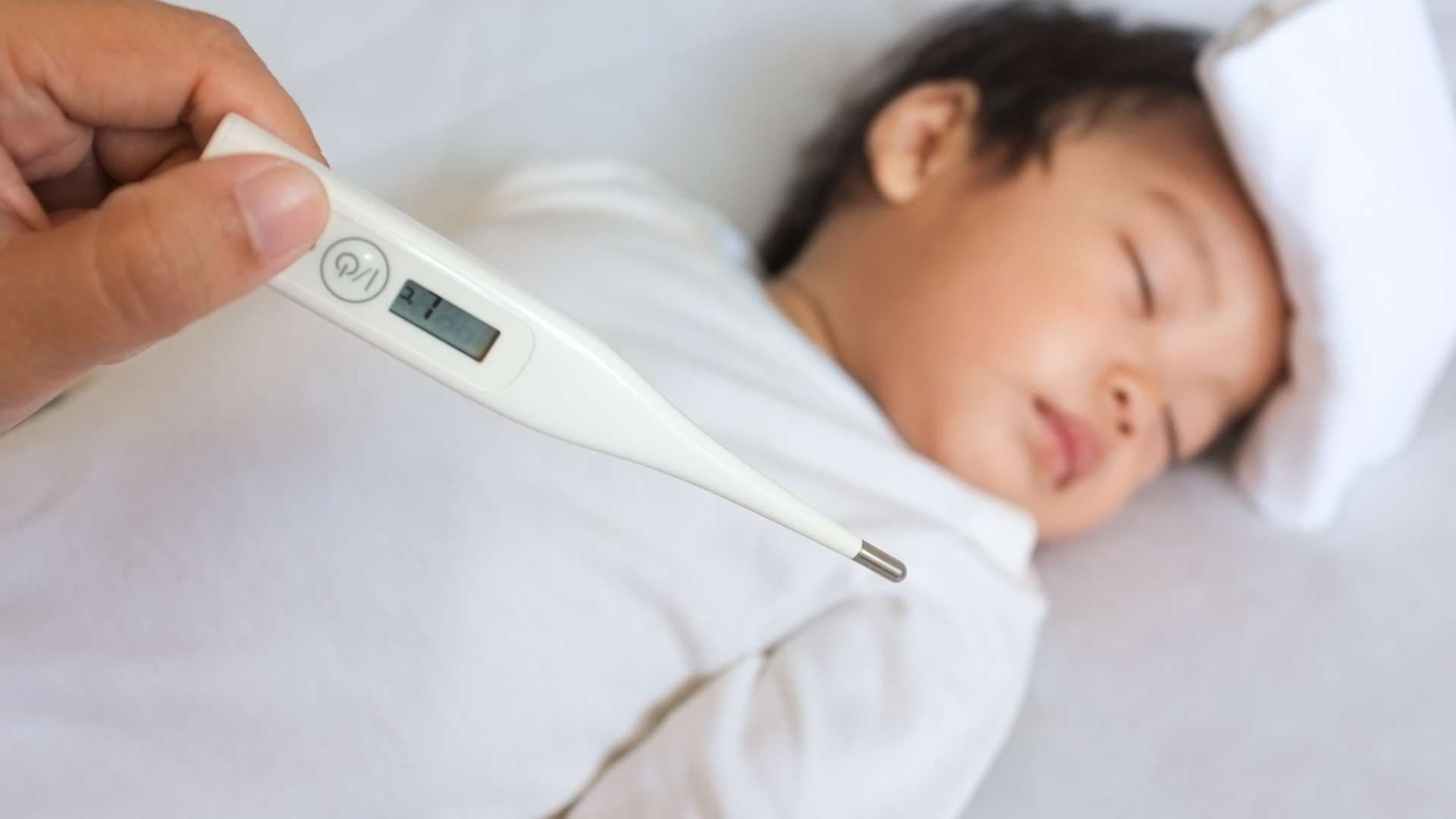Keeping Your Little Ones Healthy: A Guide to Common Childhood Illnesses

As parents, safeguarding our children's health is a top priority. However, navigating the world of childhood illnesses can be confusing, especially for new parents. This guide explores some common childhood illnesses, their symptoms, and when to seek medical attention to ensure your little ones get the care they need.

Understanding Common Childhood Illnesses:
Children are especially susceptible to germs and illnesses due to their developing immune systems. While many childhood illnesses run their course on their own with proper care and rest, some require medical intervention. Here's a look at some frequent culprits:
- Colds: The common cold is probably the most frequent childhood illness. Symptoms include runny or stuffy nose, sneezing, mild cough, sore throat, and low-grade fever. Most colds resolve within a week or two with plenty of rest, fluids, and over-the-counter medications (for children over the recommended age). However, consult your pediatrician if symptoms worsen or persist for more than ten days.
- The Flu (Influenza): Influenza is a respiratory illness caused by a virus. Symptoms are typically more severe than a cold and can include high fever, chills, body aches, fatigue, headache, and a runny or stuffy nose. While most healthy children recover within a week or two, seek medical attention if your child experiences difficulty breathing, persistent vomiting, severe headache, or fever lasting more than three days.
- Ear Infections: Ear infections are common in young children due to the structure of their Eustachian tubes (tubes connecting the middle ear to the back of the nose and throat). Symptoms include earache, fever, fussiness, and difficulty sleeping. Consult your pediatrician if you notice signs of an ear infection, as prompt treatment with antibiotics can prevent complications.
- Stomach Virus (Gastroenteritis): Gastroenteritis, also known as the "stomach flu," is a viral or bacterial infection that inflames the stomach and intestines. Symptoms include vomiting, diarrhea, abdominal cramps, and dehydration. While most cases resolve on their own with plenty of fluids and rest, seek medical attention if your child experiences persistent vomiting, bloody stools, signs of severe dehydration (such as sunken eyes, decreased urination, or lethargy), or a fever exceeding 102°F (38.9°C).
- Respiratory Syncytial Virus (RSV): RSV is a common respiratory virus that typically affects infants and young children. Symptoms include a runny or stuffy nose, cough, wheezing, and difficulty breathing. Most cases improve with home care, but seek medical attention if your child experiences rapid breathing, wheezing, or difficulty feeding.

When to Seek Medical Attention:
While many childhood illnesses can be managed at home, there are situations where seeking medical advice is crucial. Here are some red flags to watch out for:
- High fever: A fever exceeding 102°F (38.9°C) in an infant (less than 3 months old) or 104°F (40°C) in an older child warrants a call to your pediatrician.
- Persistent vomiting or diarrhea: These symptoms can lead to dehydration, especially in young children.
- Signs of dehydration: Look for dry mouth, sunken eyes, decreased urination, or excessive sleepiness.
- Difficulty breathing: Rapid breathing, wheezing, or struggling to catch their breath indicates potential respiratory distress and requires immediate medical attention.
- Severe earache: An earache accompanied by fever, pus drainage, or persistent crying could signal a more serious ear infection.
- Unusual rashes: A sudden rash, especially if accompanied by fever or lethargy, should be evaluated by a doctor.
- Change in behavior: If your child becomes unusually lethargic, irritable, or confused, it's best to consult your pediatrician.
- Worrisome symptoms: Even if your child's symptoms don't fall neatly into one category, trust your instincts. If something feels off or you're concerned, don't hesitate to seek medical advice.
Remember: This is not an exhaustive list, and it's always better to err on the side of caution. When in doubt, consult your pediatrician. They can provide personalized advice and ensure your child receives the appropriate care.
Keeping Your Child Healthy:
By practicing good hygiene habits like frequent handwashing, maintaining a clean environment, and ensuring your child's vaccinations are up-to-date, you can help prevent the spread of many common childhood illnesses. Additionally, a healthy diet and adequate sleep contribute to a strong immune system, better equipping your child to fight off infections.
By staying informed and prepared, you can navigate the world of childhood illnesses with confidence and ensure your little ones stay healthy and happy.


